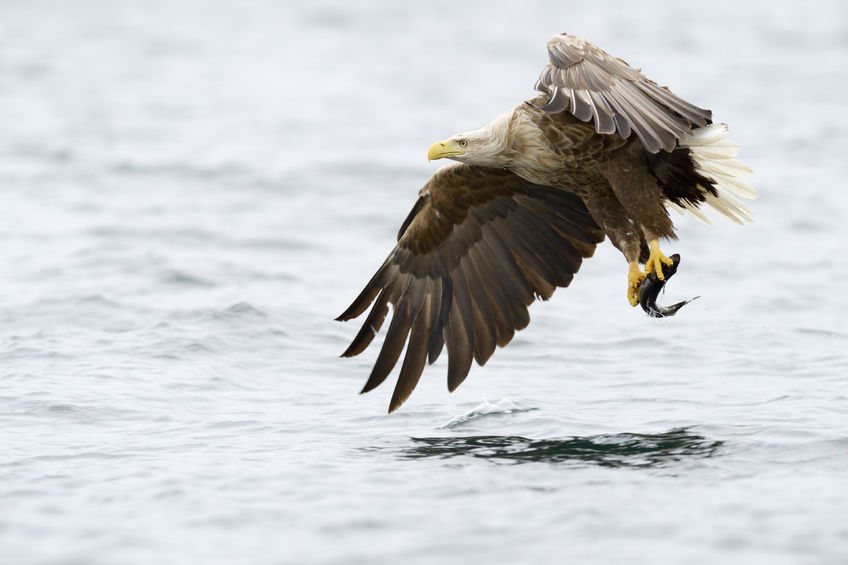
Sheep farmers are challenging proposals to release white-tailed sea eagles on the Isle of Wight due to concerns they could kill livestock.
The Roy Dennis Foundation and the Forestry Commission have formally lodged an application to Natural England to release the birds during the summer of 2019.
Both organisations want around 30 pairs released across the next five years. The birds were last present in the UK in the early 20th century.
Responding to concerns raised by its members, the National Sheep Association (NSA) said the move is 'completely irresponsible'.
The organisation is concerned about any plans to release large apex predators into the UK environment when habitats and food availability have changed 'immeasurably' since when the species lived before its extinction in the UK.
It comes as the government refuses Lynx UK Trust's application to reintroduce Euasian Lynx in Northumberland, saying it did not meet the “necessary standards”.
NSA Chief Executive, Phil Stocker said: “The idea of releasing these large predators into our environment may sound very appealing – but as any livestock farmer will tell you, you don’t buy a batch of animals without first being confident you have the right conditions for them and you can feed them.
“It would be completely irresponsible to do so otherwise. We are told the white-tailed sea eagle was last present in the early 1800s, some 200 years ago, and no one can dispute our environment has since changed to the extent that it would be unrecognisable now.”
Prey on sheep
Farmers feel strongly that the birds, if introduced, would prey on sheep and affect the livelihoods of small-scale businesses due to a lack of wild prey.
NSA said that successful sheep farming is essential in maintaining grassland environments and their related ecosystems.
Mr Stocker added: “The built-up environment along the south coast of England, the traffic, the human pressure and light pollution raise big questions as to how this area could be considered suitable for a population of some 30 pairs across the next five years.
“But the food situation raises even more questions and I seriously doubt our wildlife is abundant enough to support this species sustainably without them having to scavenge for food in ways that may not be natural for them.
“If they turn to prey on our farmed livestock, then the welfare implications completely contradict society’s expectations for high animal welfare,” he said.
Opposition to the proposals is based on the work of NSA Scottish Region. There, sheep farmers on the west coast of Scotland are struggling with high lamb losses from re-introduced white-tailed sea eagles, with some saying they question the viability of continuing farming sheep.
Laser beam technology is being trialled in Scotland as a method to deter the birds from kidnapping lambs.
